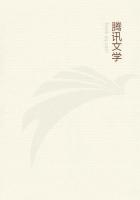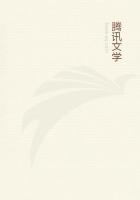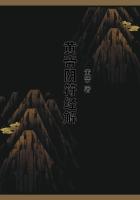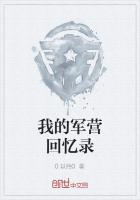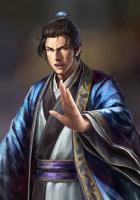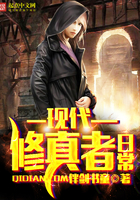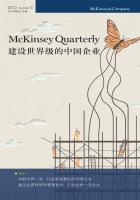All in all, it took the Russians two centuries to deliver themselves from this yoke. For a yoke it was and a most offensive and objectionable one. It turned the Slavic peasants into miserable slaves. No Russian could hope to survive un- less he was willing to creep before a dirty little yellow man who sat in a tent somewhere in the heart of the steppes of southern Russia and spat at him. It deprived the mass of the people of all feeling of honour and independence. It made hunger and misery and maltreatment and personal abuse the normal state of human existence. Until at last the average Russian, were he peasant or nobleman, went about his business like a neglected dog who has been beaten so often that his spirit has been broken and he dare not wag his tail without permission.
There was no escape. The horsemen of the Tartar Khan were fast and merciless. The endless prairie did not give a man a chance to cross into the safe territory of his neighbour.
He must keep quiet and bear what his yellow master decided to inflict upon him or run the risk of death. Of course, Europe might have interfered. But Europe was engaged upon business of its own, fighting the quarrels between the Pope and the emperor or suppressing this or that or the other heresy.
And so Europe left the Slav to his fate, and forced him to work out his own salvation.
The final saviour of Russia was one of the many small states, founded by the early Norse rulers. It was situated in the heart of the Russian plain. Its capital, Moscow, was upon a steep hill on the banks of the Moskwa river. This little principality, by dint of pleasing the Tartar (when it was necessary to please), and opposing him (when it was safe to do so), had, during the middle of the fourteenth century made itself the leader of a new national life. It must be remembered that the Tartars were wholly deficient in constructive political ability.
They could only destroy. Their chief aim in conquering new territories was to obtain revenue. To get this revenue in the form of taxes, it was necessary to allow certain remnants of the old political organization to continue. Hence there were many little towns, surviving by the grace of the Great Khan, that they might act as tax-gatherers and rob their neighbours for the benefit of the Tartar treasury.
The state of Moscow, growing fat at the expense of the surrounding territory, finally became strong enough to risk open rebellion against its masters, the Tartars. It was successful and its fame as the leader in the cause of Russian independence made Moscow the natural centre for all those who still believed in a better future for the Slavic race. In the year 1458, Constantinople was taken by the Turks. Ten years later, under the rule of Ivan III, Moscow informed the western world that the Slavic state laid claim to the worldly and spiritual inheritance of the lost Byzantine Empire, and such traditions of the Roman empire as had survived in Constantinople. A generation afterwards, under Ivan the Terrible, the grand dukes of Moscow were strong enough to adopt the title of Caesar, or Tsar, and to demand recognition by the western powers of Europe.
In the year 1598, with Feodor the First, the old Muscovite dynasty, descendants of the original Norseman Rurik, came to an end. For the next seven years, a Tartar half-breed, by the name of Boris Godunow, reigned as Tsar. It was during this period that the future destiny of the large masses of the Russian people was decided. This Empire was rich in land but very poor in money. There was no trade and there were no factories. Its few cities were dirty villages. It was composed of a strong central government and a vast number of illiterate peasants. This government, a mixture of Slavic, Norse, Byzantine and Tartar influences, recognised nothing beyond the interest of the state. To defend this state, it needed an army. To gather the taxes, which were necessary to pay the soldiers, it needed civil servants. To pay these many officials it needed land. In the vast wilderness on the east and west there was a sufficient supply of this commodity. But land without a few labourers to till the fields and tend the cattle, has no value. Therefore the old nomadic peasants were robbed of one privilege after the other, until finally, during the first year of the sixteenth century, they were formally made a part of the soil upon which they lived. The Russian peasants ceased to be free men. They became serfs or slaves and they remained serfs until the year 1861, when their fate had become so terrible that they were beginning to die out.
In the seventeenth century, this new state with its growing territory which was spreading quickly into Siberia, had become a force with which the rest of Europe was obliged to reckon. In 1618, after the death of Boris Godunow, the Russian nobles had elected one of their own number to be Tsar. He was Michael, the son of Feodor, of the Moscow family of Romanow who lived in a little house just outside the Kremlin.
In the year 1672 his great-grandson, Peter, the son of another Feodor, was born. When the child was ten years old, his step-sister Sophia took possession of the Russian throne.
The little boy was allowed to spend his days in the suburbs of the national capital, where the foreigners lived. Surrounded by Scotch barkeepers, Dutch traders, Swiss apothecaries, Italian barbers, French dancing teachers and German school-masters, the young prince obtained a first but rather extraordinary impression of that far-away and mysterious Europe where things were done differently.
When he was seventeen years old, he suddenly pushed Sister Sophia from the throne. Peter himself became the ruler of Russia. He was not contented with being the Tsar of a semi-barbarous and half-Asiatic people. He must be the sovereign head of a civilised nation. To change Russia overnight from a Byzantine-Tartar state into a European empire was no small undertaking. It needed strong hands and a capable head. Peter possessed both. In the year 1698, the great operation of grafting Modern Europe upon Ancient Russia was performed. The patient did not die. But he never got over the shock, as the events of the last five years have shown very plainly.

